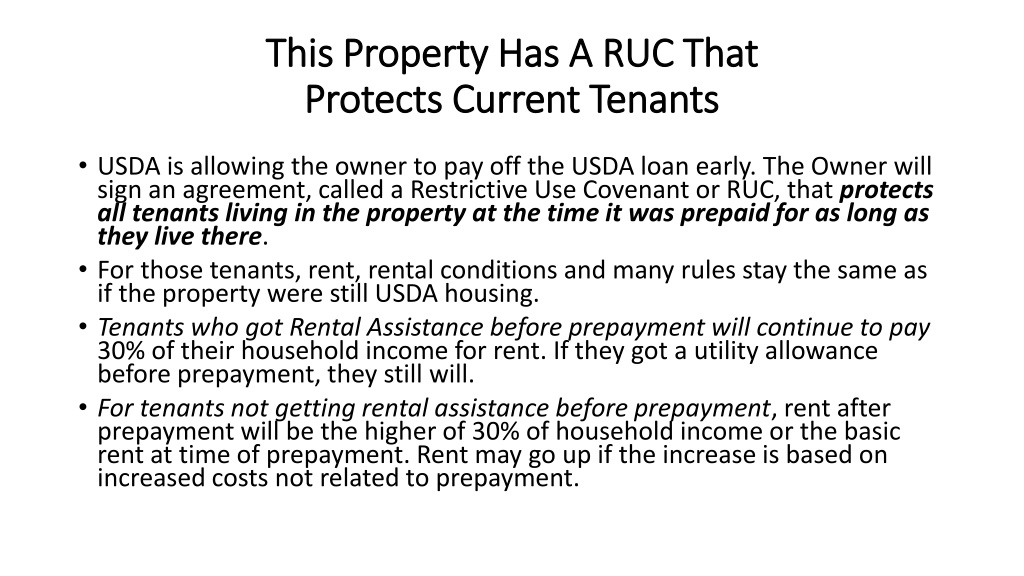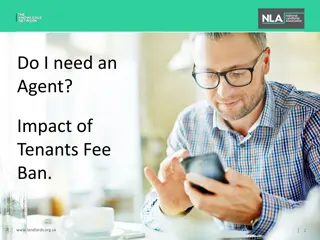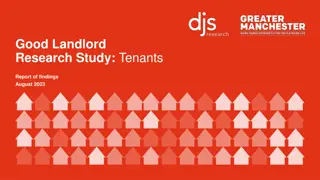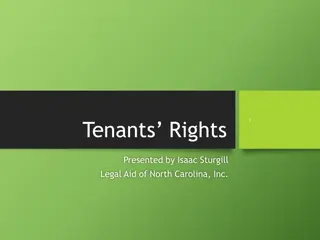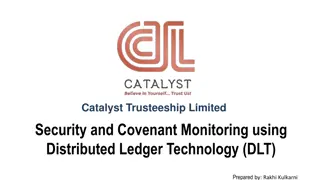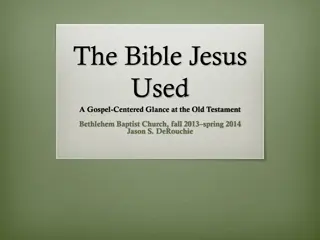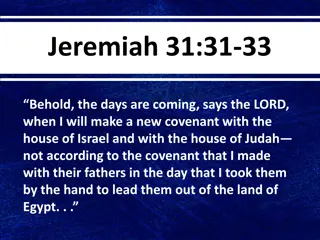Tenants' Rights in Properties with Restrictive Use Covenant (RUC)
In properties with a Restrictive Use Covenant (RUC), current tenants are protected even after an owner pre-pays a USDA loan early. The RUC safeguards tenants' rental conditions, limits rent increases, and provides additional protections such as the right to a grievance process. Tenants have options to stay, apply for vouchers, or terminate leases with RUC provisions. Understanding these rights is crucial for tenants facing a property prepayment situation.
Download Presentation

Please find below an Image/Link to download the presentation.
The content on the website is provided AS IS for your information and personal use only. It may not be sold, licensed, or shared on other websites without obtaining consent from the author. Download presentation by click this link. If you encounter any issues during the download, it is possible that the publisher has removed the file from their server.
E N D
Presentation Transcript
This Property Has A RUC That This Property Has A RUC That Protects Current Tenants Protects Current Tenants USDA is allowing the owner to pay off the USDA loan early. The Owner will sign an agreement, called a Restrictive Use Covenant or RUC, that protects all tenants living in the property at the time it was prepaid for as long as they live there. For those tenants, rent, rental conditions and many rules stay the same as if the property were still USDA housing. Tenants who got Rental Assistance before prepayment will continue to pay 30% of their household income for rent. If they got a utility allowance before prepayment, they still will. For tenants not getting rental assistance before prepayment, rent after prepayment will be the higher of 30% of household income or the basic rent at time of prepayment. Rent may go up if the increase is based on increased costs not related to prepayment.
The RUC Provides USDA The RUC Provides USDA- -type Protections type Protections The RUC provides other protection that continue after prepayment for tenants who lived in the property at time of prepayment. These continue even if the property is sold to another owner. These tenants cannot be evicted without good cause, as in USDA rentals. Good cause includes failure to pay rent, repeated late rent payment, or material lease violation. Before evicting, the Owner must give them a chance to cure the violation Their late fees for rent is limited to $10 or 5 percent of rent, when the payment is more than 10 days late They can appeal Owner decisions using the USDA tenant grievance/appeals process. The Owner has to give tenants a copy of the grievance process. (But the grievance process is not available in eviction cases.)
Other RUC Rights For Existing Tenants Other RUC Rights For Existing Tenants The Owner must accept a RD voucher or a Section 8 voucher if tenants wish to use one to help pay their rent. The tenant may not be required to pay utilities or other charges they were not required to pay when the property was in the RD program. USDA may enforce these tenant rights. The tenants living in the property at time of prepayment can enforce these tenant rights in court. This includes raising the RUC rights as a defense to an eviction.
What are a Tenants Options In RUC Property What are a Tenant s Options In RUC Property When An Owner Prepays? When An Owner Prepays? You May Stay In Current Residence As you decide whether to move or stay, you should be aware that the RUC limits rent increases at your current property and gives you the right to lease renewals. Other unsubsidized properties usually don t have rent limits, and the owner may decide to stop renting to you at the end of the lease. You may remain at the property under your current lease until it expires, then sign a new lease with a Lease Addendum that sets out your rights under the RUC. You also may choose to apply for a RD Voucher and sign a lease provision for that. If you get a voucher and decide to move later, you can take the voucher with you. With the Owner s agreement, you may terminate your current lease, apply for a RD voucher, and sign a new lease with a RUC Lease Addendum and provisions for the RD Voucher.
What are a Tenants Options In RUC Property What are a Tenant s Options In RUC Property When An Owner Prepays? When An Owner Prepays? You May Move to Another Rental Find a subsidized rental such as Low Income Tax Credit or Section 8 OR Use RD Voucher and find a private rental. Be aware that rent at unsubsidized rentals generally increases over time, without a cap based on your income. o Landlord must be willing to accept the voucher o You must find new rental within 60 days of receipt of the voucher. You can request a 60 day extension. o You can use the RD Voucher anywhere in the United States and its territories o A RD Voucher can move with you if you remain eligible and Congress continues to fund vouchers. o The RD Voucher will never increase above the initial amount approved, even if your rent increases. You will be responsible for paying any rent increase. You have 10 months to apply for a voucher. If you don t ask for a voucher, you can t get it later. Replace Original Slide 13
